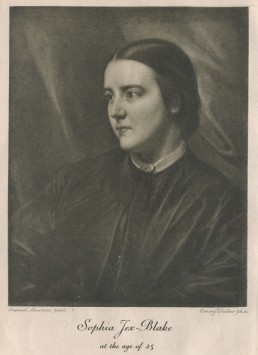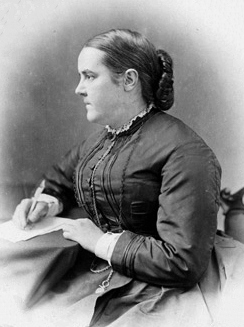by Remmy Fillip
Image credit: Peggy Choucair
Last year, 60 percent of the undergraduate students at the University of Edinburgh were female, continuing a trend that has been going on for at least a decade.1 However, it hasn’t always been the case; for most of history, women were actively prevented from practicing numerous professions and from attending institutions of higher education. It was only the efforts of ambitious, motivated women that opened the doors and paved the way for generations to come, and in Edinburgh we are truly standing on the shoulders of giants.
If you pass by Surgeon’s Hall on Nicolson Street today, you will notice a plaque that commemorates the Edinburgh Seven: a group of women determined to gain access to a level of education formerly reserved for men. Led by Sophia Jex-Blake, the group consisted of Isabel Thorne, Edith Pechey, Matilda Chaplin, Helen Evans, Mary Anderson and Emily Bovell. These were the seven names listed on the petition submitted to the Royal Infirmary on the 15th of November 1870, asking to be allowed to learn and work towards a medical career.
The task was not easy, and the women encountered difficulties and obstacles at every step. Jex-Blake was the first to apply to study medicine at the University, a request which was initially rejected, as the institution claimed it could not make special arrangements ‘in the interest of one lady’.2 Not one to give up easily, Jex-Blake immediately advertised in local and national newspapers for more women to join the cause. As a result, she and four others attended the matriculation exam in 1869, and achieved better results than the vast majority of the 147 male students who also sat the examination. Officially, the University of Edinburgh became the first in the country to open its doors to women.
The first female medical students in the United Kingdom had much to celebrate, but their success was marred by the hostility endured from teachers and fellow classmates. For a long time, they only walked across campus in a group, with male students shouting obscenities at them or even threatening them with violence. It all culminated with the Surgeon’s Hall Riot, when an angry mob waited for them to arrive for an exam only to try to prevent them from attending. Hundreds of people shouted abuse, pelted them with mud, and closed the gates of the building in their faces. However this outrageous demonstration of hate had an unexpected effect: shocked at the behaviour of the crowd, several male students turned to help, escorting them inside the Hall and thereafter acting as unofficial bodyguards.
Despite public opinion slowly shifting, and the quest for female education gaining more and more supporters (including, most famously, Charles Darwin), the battle was far from over. In 1873, the supreme civil court of Scotland ruled that the University had the right to refuse women their degrees, even after they attended all the classes required. Five of the Edinburgh Seven subsequently obtained their MD qualifications abroad, in Switzerland and France.
In 1878, Jex-Blake became the first female doctor in Edinburgh when she established her own practice in the New Town. She was also crucial in establishing the London School of Medicine for Women, offering countless others the possibility to study and become doctors. Full access to higher education, however, was only possible in 1892, the year that all Scottish universities started admitting female undergraduates.
More than 100 years have passed since then and today men and women have full and equal access to a wealth of knowledge alongside each other, as they should. And so, even as we struggle to stay awake in that 9am lecture or spend late nights stressing over a lengthy essay, we should remember the courageous women who made it possible for us to be in the lecture theatres and examination halls of universities across the country.
1 https://www.ed.ac.uk/about/annual-review/facts-and-figures
2 Jex-Blake, Sophia (1886). Medical Women (2nd ed.). Edinburgh: Oliphant, Anderson, & Ferrier. pp. 70–71.
Additional resources used:
Remmy Fillip
Remmy Fillip is the founder of Celebrating Amazing Women, a blog that features daily posts on incredible women throughout history.










